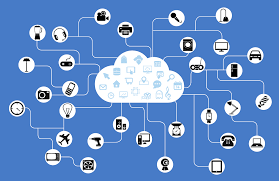Regina Coyula, 16 March 2018 — (Text published in the bulletin of the 2018 Internet Freedom Festival) Cell phones have been used commercially in the world since 1995, but we Cubans couldn’t have our own cell phones until 2009. Internet access through prepaid cards in public places dates from 2015. In Cuba, the year 2017 will be remembered for the introduction of 3G technology and access to the Internet for the first time from home via ADSL-fixed telephone lines.
The only telecommunications business that operates in the country announces an increase in access, but it comes at the cost of high prices, censorship of pages critical of the Government and self-censorship, with the user suspecting that all navigation is traceable.
I learned about the Internet in 2009, during a trip to Spain, and it was love at first sight. When I went back to Cuba, I decided to open a blog, and I asked my neighbor, the blogger Yoani Sánchez, for help. I spent months posting blindly thanks to friends abroad who uploaded the contents from content I emailed to them.
My first time on the Internet in Cuba, I wasted a prepaid card that gave me an hour of connection from a hotel, since I was so nervous and inept that I forgot the password and spent an hour of virtual onanism rereading my posts, discovering the comments…and nothing more.
I had to learn how to swim in those waters, as they say. I had to “empower myself” to be not just someone who reads email and opens a page on Facebook. Studying came to me easily because it encourages the illusion that I’m not getting Alzheimer’s like I feel with my son (I have to say that I came to motherhood late) when we’re discussing applications and programs.
And together with this familiarity that I established with the Internet, I became conscious that it’s a tool that is too powerful to be left in the hands of governments and/or businesses. As a Cuban, I feel that they have denied us entrance into the 21st century, that this digital divide is difficult to remedy and is even more serious in a literate population with a high rate of middle and higher education, which, in addition, is growing old.
We can’t blame our technological backwardness on the Blockade-Embargo (what it’s called varies according to one’s viewpoint) alone or to the long dispute between the governments of Cuba and the United States, although it has its part.
Beyond the material limitations that it supposes, there exists a domestic political will to keep us isolated and uninformed. José Martí, our greatest thinker, said it simply: “Don’t believe; read,” but we Cubans don’t want to be spoon-fed bits of information seasoned by the governmental point of view. That day when I forgot my password, I decided not only to swim, but also to help others who look out from the shore.
Translated by Regina Anavy

